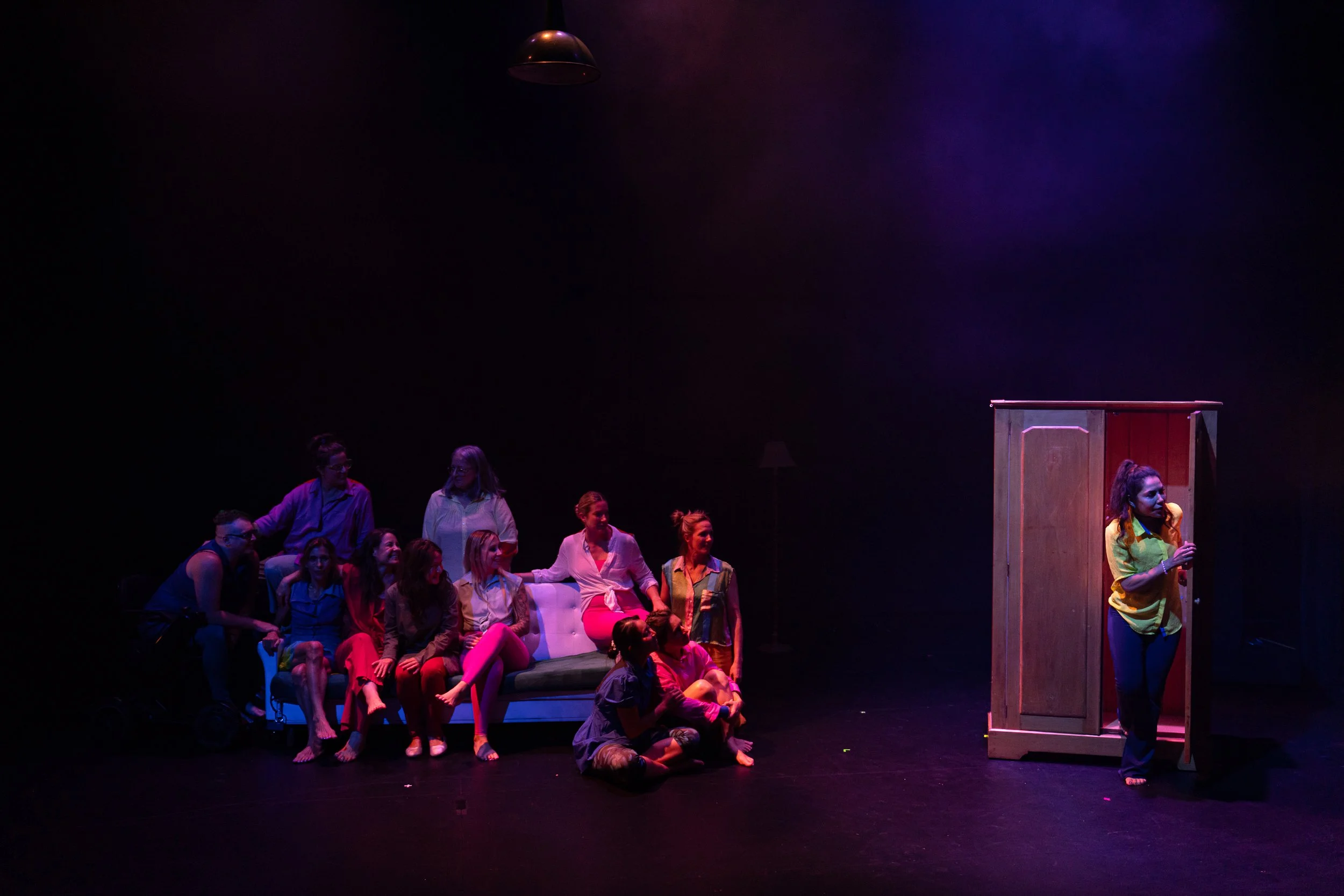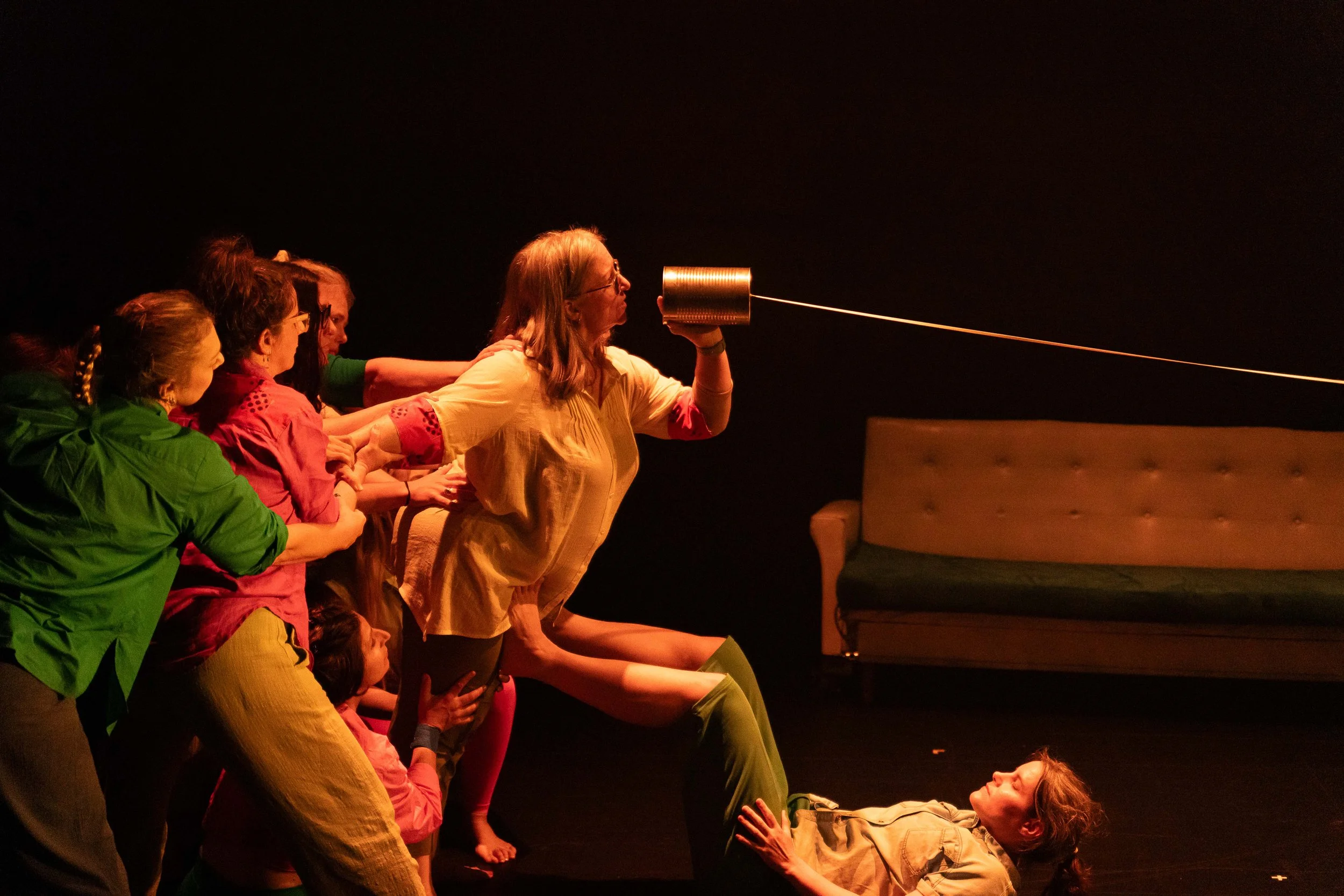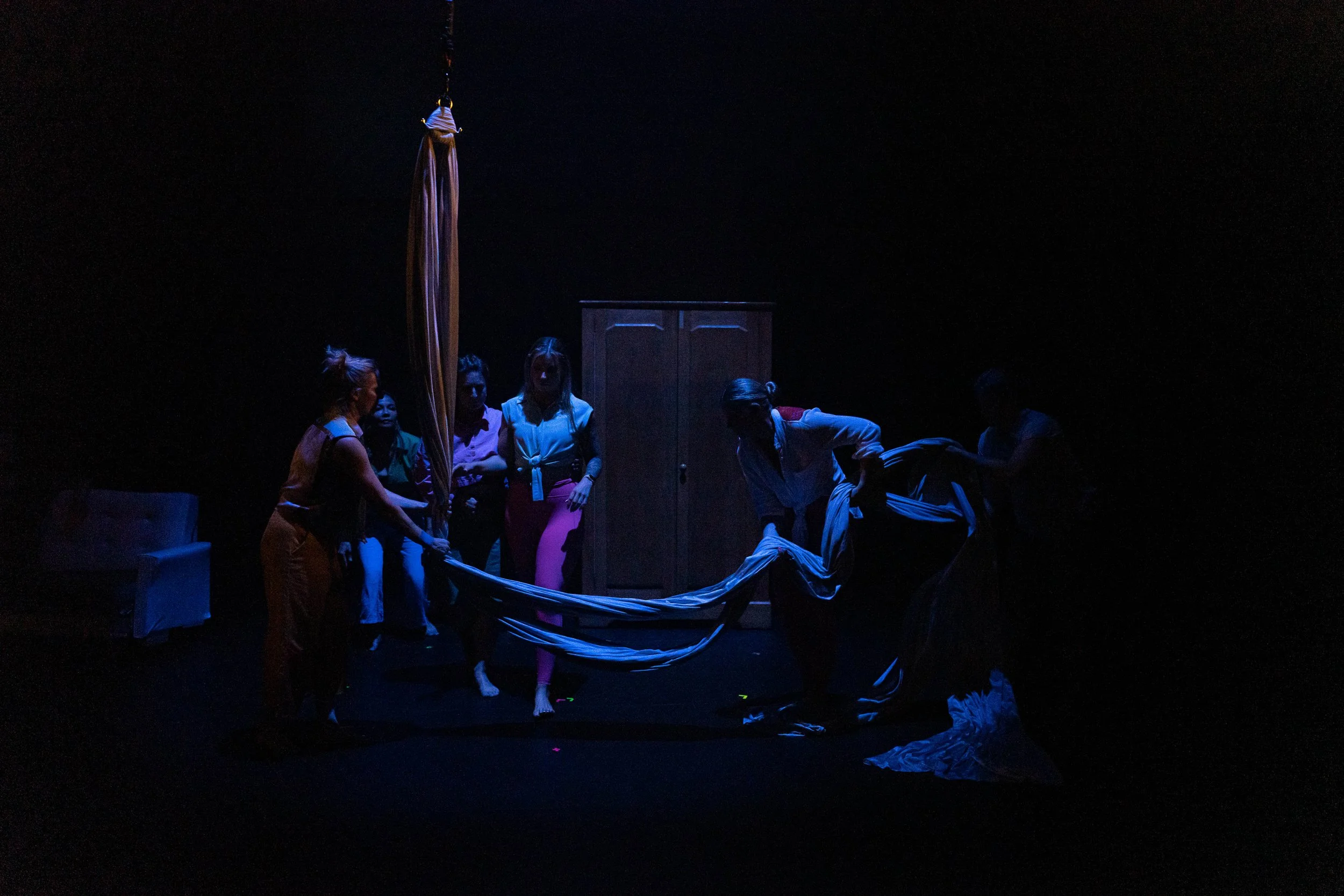Circus in a Teacup | Vulcana Circus & Micah Projects
Image credit: Jade Ellis
Circus in a Tea Cup was a showcase of strength with plenty of depth. Leveraging on the inherent power of a platform provided by a performance space, the cast proved this point in some poignantly subtle and sublime ways. As individuals and a collective of women, their bravery possessed a pulse and a purpose.
The awakening of this sensation was first set into motion by Aunty Dawn Daylight’s acknowledgement of country. Reminding us through song and spoken word that we were on land where sovereignty was never ceded was a commitment on her part to serve the cause of truth-telling. In a parallel vein, this contemporary circus performance by members of the Vulcana Circus community and women who had survived domestic violence was rooted in a commitment to build radically unimaginable versions of themselves through an artistic expression which called for trust in their own bodies and those of others.
Image credit: Jade Ellis
The most intriguing and unnerving aspect of the production was the ensemble’s emotive and evocative storytelling which was effectively achieved through its use of familiar props. Movable pieces of furniture such as a standing floor lamp, a sofa, and a two-door closet coupled with a ceiling lamp dangling from above set the scene. The disparate nature of these items simply strewn together to create a makeshift setting of domesticity and the soundscape of a throbbing heartbeat competing with a mélange of sounds one would typically hear in a household cemented the idea that this “home” was not a haven in favour of harmonious living. Against this aural backdrop of whirring sounds from a vacuum cleaner and the ringing of a phone, the embodied sequences of gestural and facial expressions and dramatised movements enacted by the cast quickly descended into a patchwork of problematic sketches signalling troubled times.
Underneath the veneer of familiarity created by the sounds of electrical appliances and the nondescript configuration of the furniture was a sense of foreboding brewing in the atmosphere. The startling statistics of gender-based violence in Australia and in Queensland are indicative of how a home can rage on as hell silently behind closed doors, hovering inconspicuously under the radar, and right under our noses even.
Image credit: Jade Ellis
The clever use of the suitcase as an accessory and a vehicle for metaphor-based language was especially impactful to me. As a suitcase was emphatically dragged across the floor by a member of the cast, I sensed the heaviness that must have accompanied the mustering of courage to leave a place of torment. Metaphorically speaking, that act also symbolised the internalisation of carrying emotional and mental baggage.
As much as this make-do abode was a site of pain, it was a site of protest, too. I found it remarkably moving to watch the intentionality and intensity of the collective female gaze at select moments of the show. Whether an artist was feeling crushed by the weight of a suitcase or hanging on for dear life as she held onto the flickering ceiling lamp, the women gathered to reach out at these critical points to extend a helping hand as a net of safety and potential salvation. This constructed show of support which was evident in their eyes and stances adopted felt all too real. It was a galvanizing force with a momentum of its own and hinted that a sense of sisterhood must have potentially emerged because of the women having had to come together to bring this program into a tangible reality.
I witnessed empowering moments of redemption when the ensemble flipped the script in two distinct ways. In an act of subversion, the lampshade was treated as a microphone and the closet morphed into a stage the women could stand on top of and verbalise their sentiments. Likening their versions of resilience to a range of things from inanimate objects to elements of nature, their articulation of an assortment of analogies displayed conviction in their voices.
Directed by Vulcana’s Artistic Director Celia White & creative Alex Mizzen, Circus in a Tea Cup is an inspiring program. As much as a teacup may conjure images of it being a dainty and fragile thing, it is also a vessel which tests the strength of its contents. The longer one steeps the tea in hot water, the stronger its flavour becomes. In some cases, the tea becomes awfully bitter. Achieving a palatable brew is a question of taste and a matter of trying, learning, and experimenting if we care enough for it.
Circus in a Tea Cup is a clarion call for us to do care and more urgently, show care by perhaps noticing and trusting our instincts. In this sense, the efforts undertaken by Vulcana Circus, Micah Projects, and Queensland Performing Arts Centre to give and gift these incredibly resilient and intelligent women an opportunity to shine through their talents are to be truly appreciated.


